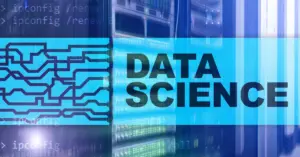The field of data science is at the core of this transformation, combining techniques from statistics, computer science, and domain knowledge to analyze and interpret complex data. Whether you’re a business professional looking to sharpen your skills or someone exploring a new career path, understanding the fundamentals of data science is essential. In today’s data-driven world, organizations are increasingly relying on data to make informed decisions. In this beginner’s guide, we’ll break down the basics of data science and show you how a Data Science Guru in Hyderabad can help you get started.
Data Science Guru in Hyderabad
Before diving deep into the world of data science, it’s essential to have a strong understanding of the key concepts and terminologies that define the field. These fundamental ideas will provide a solid foundation for anyone looking to enter the domain of data science, especially if you’re seeking to train under a Data Science Guru in Hyderabad or work with a Data Science Trainer in Hyderabad. Below, we explore the critical terms and ideas you’ll encounter as you learn more about data science.
What is Data Science?
At its core, data science is the process of extracting meaningful insights from data. It involves collecting, analyzing, and interpreting large sets of structured and unstructured data using various tools and techniques. These insights can be used to make data-driven decisions, predict trends, and solve complex problems in areas such as healthcare, finance, marketing, and more.
Key Concepts and Terminologies in Data Science:
Data science is a vast field that blends multiple disciplines, including statistics, programming, machine learning, and data visualization. If you’re eager to explore this exciting field and learn from a Data Science Trainer in Hyderabad or a Data Science Guru in Hyderabad, understanding these key concepts will set you on the right path. Here’s a detailed look into the essential terminologies every aspiring data scientist must know.
1. Statistics and Probability in Data Science
Statistics and probability form the backbone of data science. These mathematical disciplines help in making inferences and predictions from data, ensuring that any conclusions drawn are statistically sound.
Statistics: It helps in summarizing and interpreting data. Concepts like mean, median, standard deviation, and variance are fundamental tools for analyzing data. Advanced statistical methods like hypothesis testing, regression analysis, and correlation allow you to make predictive insights.
Probability: It helps in estimating the likelihood of certain outcomes based on historical data. Probability distributions, such as normal distribution and binomial distribution, are often used in machine learning algorithms to model real-world scenarios.
With the guidance of a Data Science Guru in Hyderabad, you will delve deep into how statistics and probability can drive data-driven decision-making in real-life projects.
2. Programming for Data Science
Programming is another essential aspect of data science. To manipulate, analyze, and extract insights from data, data scientists use programming languages such as Python and R. These languages come equipped with libraries and tools designed specifically for data science tasks.
Python: Known for its simplicity and readability, Python is the most popular language in data science. Libraries like NumPy, Pandas, and SciPy are used for data manipulation, while Matplotlib and Seaborn help with data visualization. Python’s flexibility makes it the go-to choice for beginners and professionals alike.
R: R is widely used for statistical analysis and data visualization. It offers specialized libraries like ggplot2 and dplyr that make it a powerful tool for data manipulation and graphical representation.
When training with a Data Science Trainer in Hyderabad, you’ll learn how to write efficient code using these languages to process large datasets and perform complex analyses.
3. Machine Learning in Data Science
Machine learning is a critical component of data science, enabling computers to “learn” from data and make predictions or decisions without being explicitly programmed. It involves creating algorithms that can identify patterns in data, classify objects, or make forecasts based on previous trends.
Supervised Learning: The model is trained using labeled data. For example, a machine learning model can be trained to predict housing prices based on historical sales data (features) and prices (labels).
Unsupervised Learning: The model works with unlabeled data and identifies hidden patterns. Clustering techniques are used to segment data without any prior knowledge.
Reinforcement Learning: Here, the model learns from feedback and adjusts its actions accordingly. This type of learning is commonly used in robotics and game theory.
A Data Science Trainer in Hyderabad will help you understand the intricacies of machine learning, from implementing algorithms like decision trees and neural networks to fine-tuning them for real-world applications.
4. Data Visualization: Turning Insights into Action
Data visualization is the process of presenting data in graphical formats that make insights easier to understand and act upon. It’s crucial because it translates complex data sets into visual formats like charts, graphs, and heatmaps, helping decision-makers grasp trends and patterns at a glance.
Tools for Data Visualization: Popular tools for creating data visualizations include Tableau, Power BI, and Python’s Matplotlib and Seaborn libraries. These tools allow data scientists to build interactive dashboards and visual reports that highlight key findings.
Importance: Effective data visualization is key to communicating findings with non-technical stakeholders, ensuring data-driven insights are understood and applied.
When you train with a Data Science Guru in Hyderabad, you will gain hands-on experience with these tools, learning how to visualize data in compelling ways that resonate with business leaders.
5. Big Data: Managing Large-Scale Information
Big Data refers to extremely large datasets that traditional data processing software can’t handle effectively. The advent of Big Data has revolutionized industries by allowing businesses to gather, store, and analyze enormous volumes of data to discover trends and insights that weren’t possible before.
Big Data is characterized by:
Volume: The sheer amount of data, ranging from terabytes to petabytes.
Velocity: The speed at which data is generated and processed, often in real time.
Variety: Different types of data, including structured (databases), semi-structured (XML), and unstructured (text, images, videos).
A Data Science Trainer in Hyderabad can guide you through the techniques and tools used to manage Big Data, including distributed computing frameworks like Hadoop and Apache Spark.
6. Data Mining: Extracting Valuable Insights
Data mining is the process of analyzing large datasets to discover patterns, correlations, and trends. It involves using statistical techniques, machine learning algorithms, and database systems to uncover relationships in data that can be used for decision-making.
Key techniques in data mining include:
Classification: Sorting data into predefined categories, such as spam detection in emails.
Clustering: Grouping similar data points, often used in customer segmentation.
Association Rule Learning: Discovering relationships between variables, like identifying items frequently bought together in retail settings.
A Data Science Guru in Hyderabad can help you become proficient in these techniques, using them to transform raw data into actionable business insights.
7. Deep Learning: Mimicking the Human Brain
Deep learning, a subset of machine learning, uses artificial neural networks with multiple layers (deep neural networks) to model complex patterns in large datasets. It’s especially useful for analyzing unstructured data like images, videos, and text.
Neural Networks: Deep learning models are inspired by the human brain’s neural networks, making them capable of learning intricate features from data. They are the driving force behind innovations like facial recognition, autonomous driving, and natural language processing (NLP).
When training with a Data Science Trainer in Hyderabad, you’ll learn how to implement deep learning models using frameworks like TensorFlow and Keras.
8. Natural Language Processing (NLP)
Natural Language Processing (NLP) focuses on the interaction between computers and human language. NLP techniques are used to analyze and generate human language, enabling machines to perform tasks like translation, sentiment analysis, and question answering.
Key NLP tasks include:
Tokenization: Breaking text into smaller components like words or sentences.
Sentiment Analysis: Detecting the emotional tone in text, which is often used in analyzing customer reviews.
Text Classification: Assigning categories to text, such as spam filtering.
NLP plays a crucial role in today’s AI-driven world, and working with a Data Science Guru in Hyderabad will help you master these techniques for real-world applications.
9. Data Wrangling and Data Cleaning
Data wrangling refers to the process of transforming and mapping raw data into a more usable format. Data cleaning is an essential step in this process, ensuring that inaccurate, incomplete, or irrelevant data is handled appropriately. Without proper cleaning, analyses could lead to misleading results.
Key steps in data wrangling include:
Handling Missing Values: Filling in or removing missing data points.
Data Transformation: Converting data types or aggregating data into more useful forms.
Outlier Detection: Identifying and handling abnormal data points that could skew results.
Training under a Data Science Trainer in Hyderabad will equip you with the skills needed to clean and prepare data for analysis, ensuring the accuracy and reliability of your models.
10. Artificial Intelligence (AI)
Artificial Intelligence (AI) is a broader concept that encompasses machine learning and deep learning. It refers to the simulation of human intelligence in machines, allowing them to perform tasks that typically require human cognition, such as recognizing speech, solving problems, and making decisions.
AI-powered systems can analyze vast amounts of data quickly and accurately, enabling automation and smarter decision-making. For example, AI in healthcare helps doctors diagnose diseases, while in finance, it assists in detecting fraudulent activities.
Why Choose a Data Science Guru in Hyderabad?
With the increasing demand for data scientists, having a Data Science Guru in Hyderabad to guide you through your learning journey can be invaluable. A skilled trainer will help you:
- Understand the Core Concepts: A strong foundation in the basics of data science is essential to progressing further.
- Learn Hands-On Skills: Practical, project-based learning is critical in data science, where real-world data problems are often complex.
- Master Tools and Techniques: From Python and R to machine learning libraries like TensorFlow and Scikit-learn, a professional trainer will help you gain proficiency in essential tools.
- Prepare for Real-World Applications: Whether you’re aiming to work in healthcare, finance, or marketing, a trainer will give you insights into industry-specific applications of data science.
The Role of a Data Science Trainer in Hyderabad
Choosing a Data Science Trainer in Hyderabad can be the key to accelerating your learning. Whether you’re a beginner or looking to advance your skills, a professional trainer will ensure that you get a comprehensive, structured learning experience. From building foundational knowledge to tackling real-world case studies, a trainer can guide you through every stage of your data science journey.
Final Thoughts
Data science is a rapidly growing field with opportunities across industries. Understanding the basics is the first step toward unlocking a rewarding career. With guidance from a Data Science Guru in Hyderabad, you can master the essential skills, learn cutting-edge tools, and apply your knowledge to solve real-world challenges.
Are you ready to embark on your data science journey? Consider finding a Data Science Trainer in Hyderabad to help you get started and navigate the complexities of this exciting field. Whether you want to learn from scratch or sharpen your current skills, Hyderabad offers a thriving hub of data science expertise to help you succeed.
Data science is an ever-evolving field that requires a strong foundation in key concepts like statistics, programming, machine learning, and data visualization. By mastering these core areas, you can unlock the potential to derive valuable insights from data and drive impactful decisions.
If you’re ready to take your skills to the next level, learning from a Data Science Guru in Hyderabad or becoming a Coding Master will give you the edge you need in today’s competitive landscape. With the right guidance, you can develop a deep understanding of the tools, techniques, and methodologies that will empower you to excel in the world of data science. Whether you’re just starting out or looking to advance, expert training will pave the way for your success in this exciting field.


